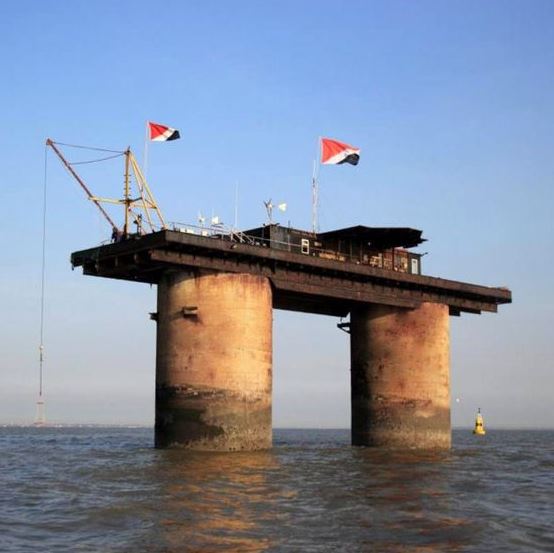The Principality of Sealand is one of the most intriguing micro-nations in the world. Situated in the North Sea, just 12 kilometers off the coast of Suffolk, England, this tiny, self-proclaimed sovereign state has captured the imagination of many due to its fascinating history and ongoing claims to independence.
Origins of Sealand
Sealand’s origins trace back to World War II, when it was known as Roughs Tower, one of several forts built by the British military to defend against German forces. These forts were constructed on large platforms, resembling oil rigs, and were placed in international waters. After the war, most of these forts were abandoned, but in 1967, a retired British major named Paddy Roy Bates decided to occupy Roughs Tower and declared it the independent state of Sealand.
Declaration of Independence
On September 2, 1967, Bates declared the fortress as the independent Principality of Sealand, appointing himself as Prince Roy. The declaration was based on the fact that the fort was in international waters, beyond the jurisdiction of the United Kingdom. Sealand quickly adopted its own flag, national anthem, currency, and even passports. Although the UK’s government did not recognize Sealand as a sovereign state, Bates and his family continued to maintain and defend their claim to independence.
Legal Challenges and International Recognition
Sealand has faced numerous legal challenges over the years. In 1968, the British government attempted to retake the fort, but Sealand’s inhabitants fired warning shots, leading to a legal battle. A UK court later ruled that Sealand was outside of British jurisdiction due to its location in international waters. Despite this ruling, Sealand has never been officially recognized as a sovereign state by any other country.
In 1978, Sealand was the scene of a bizarre incident when a group of German and Dutch mercenaries attempted to take over the platform. They captured Roy Bates’ son, Michael, but Bates managed to retake Sealand and held the invaders as prisoners of war. This led to a diplomatic standoff with Germany, which ultimately sent a diplomat to negotiate the release of the prisoners—a move that Sealand interprets as a form of recognition.
Sealand’s Economy and Citizenship
Sealand has attempted to establish various economic ventures over the years, including issuing stamps, coins, and even establishing a data haven in the early 2000s. The idea was to provide secure, offshore data storage free from the reach of conventional government regulations. However, this venture did not achieve lasting success.
Sealand also offers citizenship, titles of nobility, and even passports for sale to fund its operations. However, Sealand passports have been involved in various fraudulent activities, leading to their devaluation and lack of recognition by most nations.
Current Status and Legacy
Today, Sealand remains a fascinating curiosity—a micronation that continues to assert its independence despite the lack of recognition from the global community. The platform is maintained by the Bates family, with Michael Bates now holding the title of Prince Regent. Although it may never gain full international recognition, Sealand has secured its place in history as a symbol of individual sovereignty and the limits of international law.
Sealand’s Cultural Impact
Sealand has also left a mark on popular culture. It has been referenced in numerous books, films, and television shows. The idea of a tiny, independent nation on a former military platform has inspired discussions about sovereignty, freedom, and the concept of what constitutes a country.
In the digital age, Sealand continues to capture the imagination of those intrigued by alternative governance and the idea of creating new states in unclaimed spaces. It stands as a unique experiment in micro-nationalism and has attracted a global following of supporters who are fascinated by its defiance and persistence.
The Principality of Sealand is much more than just a rusting military fort in the North Sea. It represents a bold experiment in independence, challenging the norms of international law and statehood. While its legal status remains unrecognized, Sealand’s story is a testament to the power of determination and the enduring appeal of sovereignty.
Whether viewed as a legitimate nation or a quirky historical footnote, Sealand has undeniably carved out its niche in the world. Its continued existence serves as a reminder that even the smallest of places can make a significant impact on the global stage.
